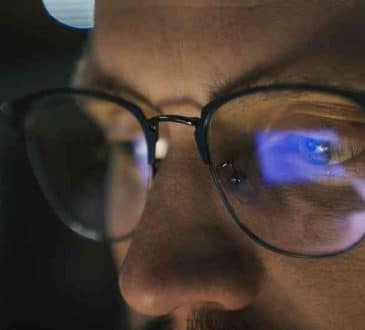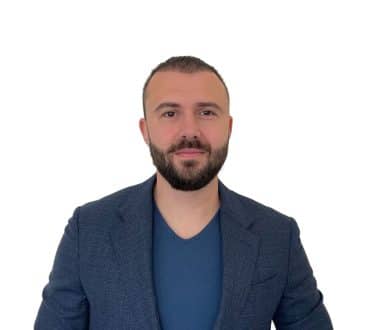Why Every CEO and Founder Must Focus on Decentralization and Blockchain Technology

Are you the CEO or founder of a brand in the world today? If so, you’ve likely seen plenty of businesses making the transition to blockchain technology and learning more about how a decentralized platform can help grow their business, while also benefiting their audience. Even if a business hasn’t made these changes yet, they are still likely considering all options available.
Technology is moving at a faster pace than ever before and, as a result, it can be quite the challenge to keep up with it at times. With these changes, we’ve had to reconsider some broad assumptions we’ve had about how the world works.
It used to be the case, for instance, that the only way to disseminate information to the masses was through traditional media like television and newspapers. Everything was filtered and there was significant gatekeepers. Today, with blogs and social media and YouTube channels, everyone has a voice and everyone has the opportunity to reach millions or even billions of people around the world. This has opened up a different set of challenges and we’ve had to adjust our behavior accordingly.
The way that businesses operate is also be challenged by an emerging paradigm that leverages the power of blockchain technology. Decentralized autonomous organizations, or DAOs, could represent an increasing influence into how businesses are run and the say we have in how they are run.
Have you read?
# Best Universities In The World For 2018.
# Best Fashion Schools In The World For 2018.
# Best Hospitality And Hotel Management Schools In The World For 2018.
# Best Business Schools In The World For 2018.
What’s the Deal with DAOs?
By now, you’ve probably at least heard about blockchain technology in the context of cryptocurrencies like Bitcoin. This decentralized approach to “money” flies in the face of more traditional, government issued “fiat” currencies like the US dollar and the British pound. Cryptocurrencies virtually eliminate geopolitical borders, allowing for the instant transfer of funds between parties, all verified, safe and secure thanks to the blockchain.
This has extended to several other applications of the blockchain, particularly as they relate to “smart contracts” to create trust in what may otherwise be seen as “trustless” business transactions. Intermediaries and brokers can be taken out of the equation, making for a more efficient and expedient process overall. I can trust that you are who you say you are because of the decentralized nature of the blockchain that verifies this information for me.
In this, this decentralized philosophy can also apply to how a business is run. With a decentralized autonomous system powering the decentralized autonomous organization (DAO), the central authority under which a traditional organization is run is fundamentally eliminated. Instead of turning solely to the input of a very small number of select executives, a DAO turns to the input of all relevant stakeholders to arrive at a reasonable consensus.
Changing the Face of Business
Think about how a business decision might be made at a regular large corporation. A local manager might come up an idea. He relays this idea to the regional manager, who might discuss the matter with some assistant managers. This could then be passed on to a national manager, who may present it to a vice president or some other executive, who might then present it to the board of directors, who must then vote on whether they want to pursue this idea and so on and so forth. This is a long and cumbersome process that hinders growth and development.
Larger companies may have a lot of resources at their disposal, but they move slowly because of this organizational infrastructure. The bureaucracy is ineffective, inefficient, and costly to manage. By contrast, smaller startups can be incredibly agile and may be better able to adapt to changes in the market, but they don’t really have the capital or resources to capitalize as readily on these emerging opportunities at scale. As a business, you end up stuck between a rock and a hard place. The bigger you get, the harder it is to move. The smaller you are, the harder it is to compete with the bigger players.
A decentralized autonomous organization (DAO) is one where, by definition, there is no central authority. What this means is that while all the moving parts of the organization are still connected, they can all act with relative autonomy. Each entity can benefit from the agility of a smaller organization while also capitalizing on the scale and resources of the larger organization. It’s a win-win situation.
Building a System
The blockchain represents a huge opportunity for everyone involved, but trying to run a blockchain company can still be a remarkably daunting task. They accumulate plenty of assets from initial coin offerings (ICO) and other capital generating practices, and they’ve got thousands of enthusiastic community members who want to be active participants in the process. But how do you manage all of that?
One compelling option is DAOstack. The goal here is to develop an infrastructure such that developing these decentralized applications is easier with customizable tools for budgeting, incentivization, decision making and more. With DAOstack, organizations can create modular structures that can be edited, merged and removed as the needs of the organization shift.
This grants them the flexibility and agility of a smaller organization, while still offering the scale and resources of a growing company or market. One technology underpinning the DAOstack solution is called holographic consensus. The larger organization is divided into smaller groups that can then make decisions via relative majority within each group. These decisions must then align with the overall consensus, moving to the relevant group after crossing the threshold to be “boosted.”
Remember that the “A” in “DAO” stands for “autonomous.” That’s because this entire process should be able to operate on its own. A good example might be a crowdsourced resource site where you want to incentivize and reward those who contribute their input. Take YouTube, for example. With the sheer volume of videos, it would be impossible for a human team to filter through all that content and provide value back to the video creator manually. Operated as a DAO built upon the blockchain, it could.
A More Democratic Approach
When final decisions are dictated solely by a single executive or even by a board of directors, the decision making process will always be slow and it may not necessarily represent the overall will or desire of the stakeholders. That’s how the majority of businesses and organizations are run today, but that kind of organizational structure is inherently limiting.
Decentralized autonomous organizations (DAOs) can overcome this challenge by making it possible for hundreds, thousands or even millions of people to come together to make collective decisions together quickly. This kind of governance system is inherently more democratic in nature and because it can be scaled through the blockchain, it’s nimble and efficient too.
The end result, based on Ethereum smart contracts, is frictionless, collective cooperation at scale. Everyone can co-own and co-manage assets and resources, collaborating in ways once thought impossible.
Add CEOWORLD magazine to your Google News feed.
Follow CEOWORLD magazine headlines on: Google News, LinkedIn, Twitter, and Facebook.
Copyright 2024 The CEOWORLD magazine. All rights reserved. This material (and any extract from it) must not be copied, redistributed or placed on any website, without CEOWORLD magazine' prior written consent. For media queries, please contact: info@ceoworld.biz








